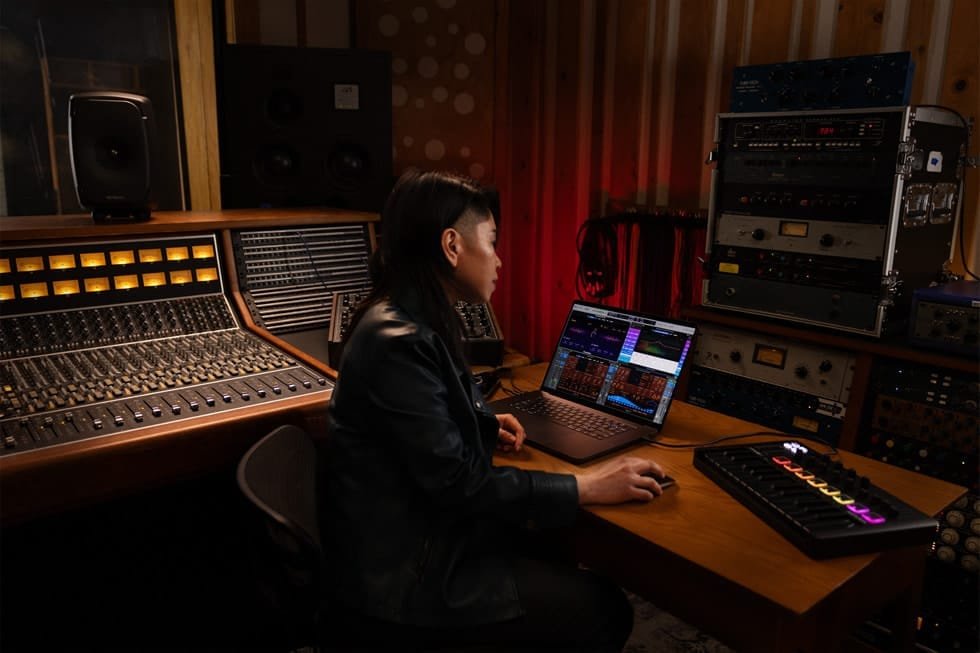How to Become a Sound Engineer
July 14, 2023 2024-09-21 19:47How to Become a Sound Engineer

How to Become a Sound Engineer
Introduction : How to Become a Sound Engineer in India
If you have a passion for music, technology, and a keen ear for sound, a career as a sound engineer might be the perfect fit for you. Sound engineers play a vital role in the music industry, film production, live events, and more. In this blog, we will provide a comprehensive guide on how to become a sound engineer in India, exploring the required skills, educational pathways, and potential career opportunities.

Step by Step Guide : How to become a Sound Engineer
Understand the Role of a Sound Engineer : Before embarking on your journey, it’s important to have a clear understanding of the responsibilities and tasks of a sound engineer. Sound engineers are responsible for capturing, recording, mixing, and manipulating sound for various purposes, such as music production, film soundtracks, live concerts, and studio recordings. They work with a range of audio equipment and software to ensure high-quality sound reproduction.
Develop Technical Skills : To become a sound engineer, you need to develop strong technical skills in audio engineering. Start by familiarizing yourself with the basics of sound physics, acoustics, and signal flow. Gain hands-on experience with audio equipment, such as microphones, mixing consoles, amplifiers, and digital audio workstations (DAWs). Learn about recording techniques, microphone placement, and signal processing.
Pursue Formal Education : While not mandatory, pursuing a formal education in sound engineering can provide you with a solid foundation and increase your employability. Look for institutes or colleges in India that offer courses or diploma programs in audio engineering, music production, or sound design. Some renowned institutions include the Film and Television Institute of India (FTII), Satyajit Ray Film and Television Institute (SRFTI), and the School of Audio Engineering (SAE) Institute.
Gain Practical Experience : Alongside your education, it is crucial to gain practical experience in the field of sound engineering. Seek internships, part-time jobs, or volunteering opportunities at recording studios, live event venues, or production houses. This hands-on experience will allow you to apply your theoretical knowledge, work with professionals, and build a portfolio of your work.
Network within the Industry : Networking plays a significant role in any career, including sound engineering. Attend industry events, seminars, and workshops to meet professionals and fellow enthusiasts. Join online communities, forums, and social media groups related to sound engineering. Networking can lead to job opportunities, collaborations, and mentorship.
Stay Updated with Technological Advancements : The field of sound engineering is constantly evolving, with new technologies and techniques emerging regularly. Stay updated with the latest advancements in audio equipment, software, and industry trends. Continuous learning and adaptation to new technologies will give you a competitive edge in the job market.
Build a Portfolio and Promote Yourself : As you gain experience and create quality work, build a portfolio that showcases your skills and projects. Include examples of your recordings, mixing, and any notable projects you have worked on. Create a professional website or social media profiles to showcase your portfolio and promote your services as a sound engineer.
Seek Employment Opportunities : After acquiring the necessary skills, education, and experience, start searching for employment opportunities in the music industry, film production companies, television studios, or event management companies. Look for job openings online, submit your portfolio, and attend interviews. Consider freelance opportunities to gain more experience and establish yourself in the industry.
Conclusion
Becoming a sound engineer in India requires a combination of technical skills, education, practical experience, and networking. By following the steps outlined in this guide, you can set yourself on the path to a successful career in sound engineering. Remember to stay passionate, continuously learn, and embrace the ever-evolving nature of the industry. Good luck on your journey to becoming a sound engineer in India!
Eligibility Criteria : How to Become a Sound Engineer
Eligibility criteria for becoming a sound engineer in India may vary depending on the specific educational institutions or job requirements. However, here are some general criteria often considered:
Educational Background: A high school diploma or equivalent is typically required to pursue formal education in sound engineering. Some institutions may have specific eligibility criteria for their courses or programs.
Age: Most institutes have a minimum age requirement, usually 18 years or older, for admission into sound engineering programs.
Aptitude and Interest: Having a passion for music, sound, and technology is crucial for success in this field. Demonstrating a keen ear for sound and an understanding of audio concepts is beneficial.
Technical Skills: Basic knowledge of computers, audio equipment, and digital audio workstations (DAWs) is helpful. Familiarity with music production software and hardware can be advantageous.
Communication Skills: Strong communication and teamwork skills are valuable for collaborating with musicians, producers, and other professionals in the industry.
Personal Qualities: Attention to detail, patience, problem-solving abilities, and the ability to work under pressure are important qualities for a sound engineer.
It’s important to note that eligibility criteria can vary, and it’s recommended to research and check specific requirements of educational institutions or employers you are interested in to ensure you meet their criteria.

Join Us
At Angel’s Music Academy, we understand the passion and drive of aspiring sound engineers in India. That’s why we are proud to offer comprehensive degree and diploma programs in sound engineering. Whether you’re a music enthusiast or aspiring to work in the film and entertainment industry, our courses are designed to equip you with the necessary skills and knowledge to excel in the field. Join us and embark on an exciting journey towards a rewarding career as a sound engineer.
Related Posts
Music Production Fees Comparison in India
What is a Degree in Music Production in India?
How to Learn Western Singing in India
Best Opera Teachers in the world
music-degrees-in-india
Search
Categories




